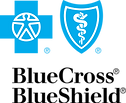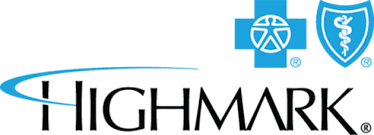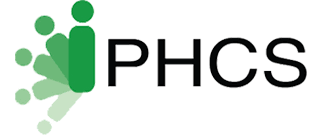Prescription Drug Addiction
Prescription drug addiction occurs when individuals misuse medications, either by taking them in higher doses than prescribed, using them for non-medical purposes, or continuing to use them despite negative consequences. These medications can include opioids like oxycodone and hydrocodone, benzodiazepines such as Xanax and Valium, stimulants like Adderall and Ritalin, and others.
Regular misuse of prescription drugs often results in physical dependence and addiction. If you or a loved one are struggling, our prescription drug rehab program in California can help.

How Prescription Drug Addiction Develops
Prescription medications are incredibly useful and are one of the reasons people can live so long today. Most people take their prescriptions as directed and stop when their doctor tells them to. However, some people start enjoying the effects their prescriptions produce, and they take their prescriptions in higher doses or more frequently than they are supposed to.
Prescription drug abuse refers to any use of prescription drugs that is in a way not intended by the healthcare provider. Examples include:
- Taking a higher dose than you’re supposed to
- Dosing more frequently than directed on the label
- Deliberately mixing a prescription with alcohol or other drugs to enhance the effects
- Crushing and snorting, smoking, or injecting drugs that are meant to be taken orally
People may abuse prescription drugs because they like the way the drugs make them feel. After regular or prolonged drug abuse, the body develops tolerance and becomes less sensitive to the effects of the drugs. When tolerance develops, people need to take higher doses to feel the same effects as before. This causes prescription drug abuse to escalate.
Eventually, the mind and body become dependent on the drugs, resulting in withdrawal symptoms that occur upon cessation. Many people find themselves desperate to avoid withdrawal so they continue misusing their medications and become addicted.
Most Commonly Abused Prescription Drugs
Prescription drug misuse is overwhelmingly common in the United States. In 2021, an estimated 5.1% of 14.3 million people over the age of 12 abused at least one prescription drug.
The most commonly abused prescription drugs are central nervous system (CNS) depressants like opioids, benzos, and tranquilizers, and stimulants like ADHD medications. In 2021:
- 3.7 million people abused a prescription stimulant
- 8.7 million abused a prescription pain reliever
- 3.9 million abused a benzodiazepine
- 4.9 million abused a tranquilizer or sedative

Opioid Painkillers
Opioids are painkiller medications. They include medications like codeine, morphine, hydrocodone (Vicodin), and oxycodone (Percocet). According to the National Institute on Drug Abuse (NIDA), an estimated 1.8% (or about 5.0 million people) over the age of 12 had a prescription opioid use disorder in 2021.
Benzodiazepines, Sedatives, and Tranquilizers
Benzodiazepines, including alprazolam (Xanax) and diazepam (Valium), are commonly prescribed to treat anxiety disorders. Tranquilizers and sedatives, on the other hand, may be used to treat insomnia or psychotic disorders. The NIDA reports that an estimated 2.2 million people had a prescription tranquilizer or sedative use disorder in 2021.
Prescription Stimulants & ADHD Medications
Prescription stimulants and ADHD medications like Adderall and Ritalin are prescribed to treat attention-deficit disorders and daytime sleep disorders. They work by increasing activity in the CNS. An estimated 1.5 million people in 2021 experienced a prescription stimulant use disorder.
Signs of Prescription Drug Addiction
Prescription drug addiction can be identified by various signs and symptoms, both physical and behavioral. Here are some common signs to watch out for:
- Increased tolerance – Over time, individuals may require higher doses of the prescription drug to achieve the desired effect, as their bodies become accustomed to the substance.
- Withdrawal symptoms – When the individual tries to stop or reduce their use of the medication, they may experience withdrawal symptoms such as anxiety, nausea, insomnia, sweating, or tremors.
- Preoccupation with obtaining the drug – People addicted to prescription drugs may spend a significant amount of time and effort obtaining the medication, including doctor shopping or forging prescriptions.
- Taking medication for non-medical reasons – Using the medication for reasons other than its intended purpose, such as to experience euphoria or to numb emotional pain.
- Neglecting responsibilities – Individuals may neglect important responsibilities at work, school, or home due to their preoccupation with obtaining and abusing drugs.
- Continued use despite negative consequences – Despite experiencing negative consequences such as relationship problems, financial difficulties, or legal issues, the person continues to misuse the medication.
Changes in behavior – Mood swings, irritability, and changes in personality can occur as a result of prescription drug addiction. - Secrecy and defensiveness – Individuals may become secretive about their medication abuse and defensive when questioned about it.
- Physical symptoms – Prescription drug addiction can lead to physical symptoms such as drowsiness, slurred speech, changes in appetite, weight loss or gain, and impaired coordination.
Social withdrawal – Withdrawal from social activities or isolating oneself from friends and family members is common.
Long-term prescription drug abuse can be harmful to your mental and physical health. Not only can it lead to physical dependence and addiction, but it can also increase the risk of mental health conditions like anxiety and depression as well as health ailments like cardiovascular disease and cognitive decline.
Treatment options such as behavioral therapy, medication-assisted treatment, and support groups can be effective in overcoming prescription drug addiction.
Treatment or Prescription Drug Addiction
If you or a loved one are struggling with prescription drug abuse, it may be time to seek help from a substance abuse treatment center. Most health insurance plans offer some level of coverage for prescription drug rehab, allowing you to obtain affordable care. To verify your insurance or determine if treatment at Invigorate Behavioral Health is right for you, please contact us at [DIRECT] today.
Treatment involves:
Detox
Prescription drug withdrawal can be difficult to cope with alone. Treatment centers offering medically assisted detox can help you detox with comfort and ease. While under medical supervision, you can detox, receive medications to alleviate your symptoms, and have the support of both licensed medical professionals and your peers.
The exact medications and/or approach to detox treatment may vary based on the substance you are addicted to. Doctors may treat opioid withdrawal using opioid replacement therapy with Suboxone or methadone, but they may treat stimulant withdrawal with symptom-specific medications and lifestyle interventions.
Inpatient Rehab
Inpatient rehab programs require you to live at the treatment facility for the duration of your care. Treatment involves around-the-clock supervision and support, individual and group counseling, psychiatric care, addiction education, and relapse prevention exercises. Undergoing prescription drug rehab in a residential setting can reduce the potential for relapse and provide you with the structured, intensive care that you need.
Aftercare
It’s important to recognize that recovery doesn’t stop when rehab does. For treatment to be effective, you must follow through with aftercare. Aftercare may include sober living, outpatient rehab, counseling, alumni programs, and more. Before leaving rehab, you and your counselor will work together to develop an aftercare plan designed to support your situation.
Achieve Wellness at our Prescription Drug Rehab Center in California
At Invigorate Behavioral Health, our mission is to support individuals and their family members who have been affected by addiction. Our team of experienced health care professionals are committed to providing each individual with a customized treatment plan based on their needs. Located in Southern California, our exclusive, modern facility offers the ideal space for recovery and wellness. To learn more about our treatment programs or to get started with a confidential, risk-free assessment, please contact us today.
We Accept Most Major Insurance Plans
Treatment here is covered by insurance. Speak with an admissions coordinator now to verify your insurance coverage.














